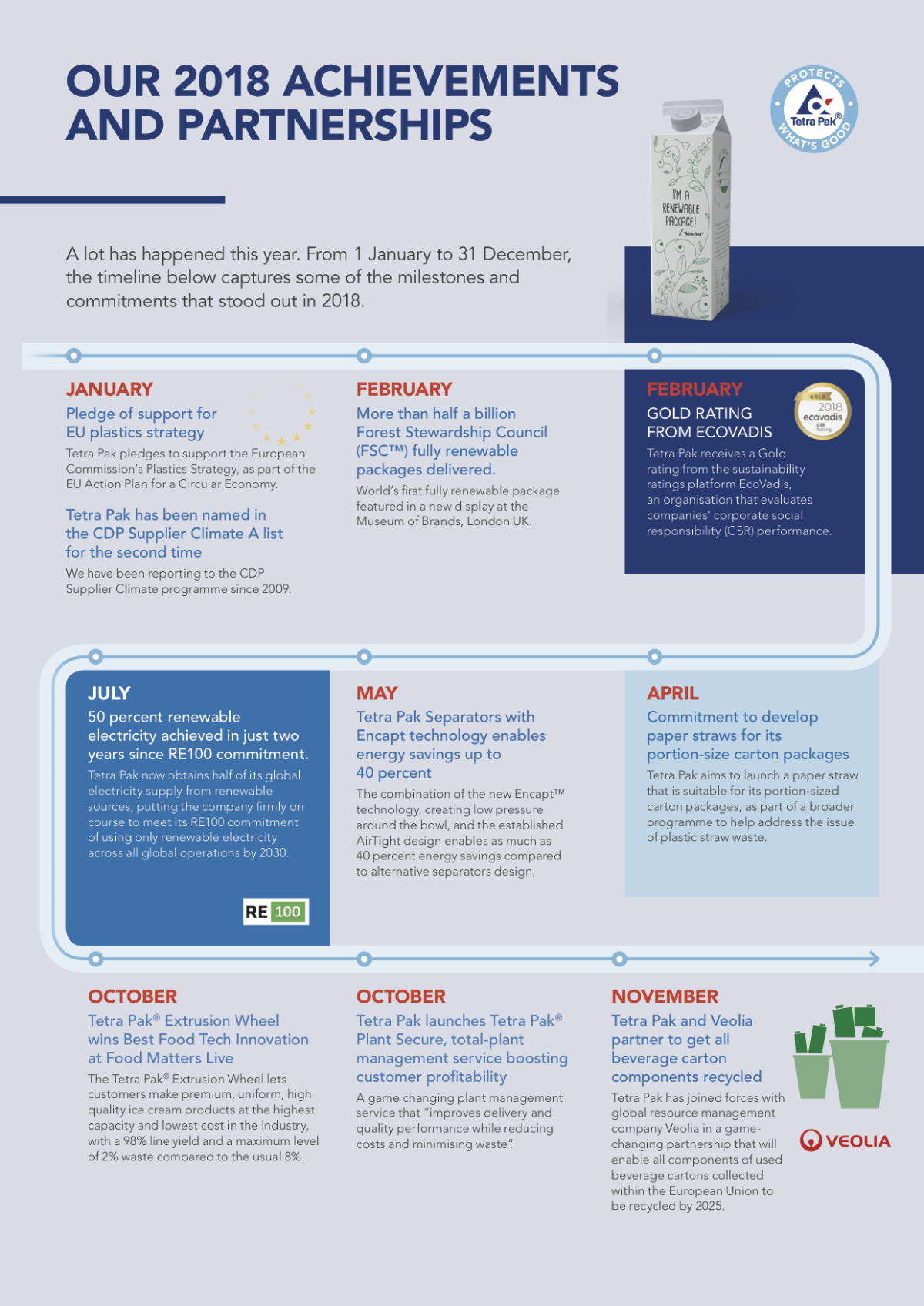Join Us in Building a Low Carbon, Circular Economy in the Food and Beverage Industry
ADOLFO ORIVE, President and CEO, Tetra Pak

As featured in Tetra Pak's Sustainability Report 2019
As Tetra Pak’s newly appointed CEO, I’m proud to lead a company that has made sustainability a key priority for such a long time. We are living in a changed world – a world more aware of, and coming to terms with, the requirements of a sustainable future. For the food and beverage industry especially, this is a time of transition and change. Never before has sustainability been in sharper focus, and with emerging technologies and innovative thinking it is within our power to do something about it. With the United Nations Sustainable Development Goals as a framework to guide us. I’m excited to deliver against this responsibility.
As a company committed to doing good – by consumers, customers, employees and society – sustainability is one of our biggest values and a critical component in the legacy we want to leave behind. Advances inspired by sustainability have helped us build success in our business and drive innovation for the food and beverage industry. Innovations such as aseptic solutions, e-beam technology, fully-renewable packaging, and low-carbon operations showcase how sustainability has always been at the core of who we are and what we do.
The dramatic shifts in the sustainability landscape within the last 18 months, including increased pressure on waste management, plastic materials and reusability, have challenged us to think differently about our approach to recycling and sustainable materials. In 2018, we strengthened our packaging portfolio innovation strategy with the ambition that our packaging should be made from renewable and/or recycled packaging materials and fully recyclable, without ever compromising on food safety requirements. We have also signed the Ellen MacArthur Foundation New Plastics Economy Global Commitment and initiated partnerships with companies like Veolia in order to expand collaboration and accelerate global beverage carton recycling. Ultimately, we want all beverage cartons to be collected for recycling, and for no cartons to end up as litter or in a landfill.
A promise to Protect What’s Good means that you must always do better. While the challenges of single use plastics are real, climate change will have an even more profound impact on the complex infrastructure of the food and beverage industry. The consequences of climate change – drought, floods, unreliable access to water and energy – will disrupt business, affecting our operations, our customers, and suppliers.
We believe that the economy of the future must be circular and low-carbon with a minimum climate impact across the entire food value chain. We are working to achieve this by delivering solutions with the lowest carbon footprint and highest efficiency, minimising the environmental impact on our own operations and working with partners to address the end-of-life of our products. And we are proud to be on track with our 2020 carbon emissions reduction ambitions.
Above all else, to be successful in creating a low carbon, circular economy in the food and beverage industry, we depend on the power of collaboration. We depend on the passion of our people and our tradition of innovation, dedication and problem solving by pulling in different perspectives from our global network of engineers, food experts and technicians. We depend on our customers to take bold steps with us. And we depend on partnerships across industries, governments and NGOs.
In this report, we’ll share with you our progress towards this ambition. Delivering against our goals in sustainability won’t be easy, but as the leader in food processing and packaging solutions with a commitment to make food safe and available everywhere, we are uniquely equipped to do so.

